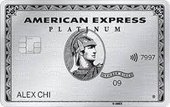What is a no annual fee credit card?
If you consider yourself to be only an occasional spender or you’re applying for a credit card for the first time, a no annual fee credit card can be an affordable option.
A credit card with no annual fee is the exception rather than the norm. Many credit card providers will charge an annual fee just for keeping the account open. But an annual fee typically applies to credit cards that offer benefits like rewards points, KrisFlyer miles, or free travel insurance and airport lounge access. The higher the annual fee, the greater the benefits that come with your account. But a credit card with no annual fee enables the cardholder to waive the yearly cost, freeing up space in their budget.
Three types of no annual fee card
No annual fee credit cards come in three flavours:
- No annual fee ever. This type of card promises a $0 annual fee for the life of the card.
- No annual fee introductory offer. Some cards which do have an annual fee will waive the fee for new cardholders for an introductory period, typically for the first year only.
- No annual fee for reaching a target spend. In this case, no annual fee is charged in any year where the cardholder reaches a minimum spending target.
Why many credit cards have an annual fee
Card issuers may charge an annual fee for various reasons, but it can be summed up as a way to cover the cost of the card's package of perks and benefits, but also the risk of extending credit.
- Sign up bonus. To justify a hefty annual fee, some credit cards offer an incentive that attempts to vindicate the steep fee. You might, for instance, pay an annual fee of $100 to earn a one-time bonus of KrisFlyer miles or rewards points. However, the cardholder is still required to achieve a particular spending amount within a given period, and the fee will be charged every year while the sign-up bonus comes only once.
- Rewards exceeding the cost of the fee. Some credit cards provide higher-value rewards, cashback or complimentary benefits, partly paid for by a larger yearly fee. If your household's spending habits outweigh the cost of the fee because the rewards points earned are substantial, the annual fee might make it worth keeping the account open.
- Credit score rebuilding. Applicants with a poor or nonexistent credit score won't always qualify for a credit card without an annual fee. To work on increasing their creditworthiness, applicants might have to open an account with a higher interest rate and a substantial yearly fee.
Who are no annual fee credit cards suitable for?
An annual fee isn't always worth the benefits it comes with. A no annual fee credit card might be useful for the following purposes:
- Credit card first-timers. Someone new to the world of credit cards won't always have a strong grasp of the market. A no annual fee credit card can get them into the habit of meeting monthly payments and keeping within budget while working towards an eventual account upgrade.
- Emergency card. Even if you're not a regular credit card user, it could be a good idea to keep a no annual fee card in your wallet for emergency expenses like unexpected medical bills or car repairs.
- Rebuilding credit. Similar to first-time credit card users, those without a credit history, or with poor credit, can use a no annual fee card to re-establish a positive score. By focusing on making timely payments instead of bagging rewards, holders of credit cards with no annual fee can improve their credit score in less than a year.
- Debt consolidation. Individuals with debt on multiple credit cards can consolidate debts with a balance transfer, ideally to a no annual fee card. Some balance transfer cards will offer a low or 0% introductory APR on the transferred amount. These promotional interest rate periods on balance transfer cards last anywhere between six to 24 months.
- Multiple cards. For experienced cardholders looking for an option to add value to their spending, a credit card without an annual fee is an affordable way to cover everyday expenses.
- No fuss, no frills. Anyone wanting a credit card just as a convenient form of payment, and nothing else, need look no further than a no annual fee credit card.
What to compare for no annual fee credit cards
When looking for the best no annual fee credit card, it's important to consider various factors before making a decision. Here are some key features to compare:
- Rewards. What kind of rewards points or cashback can you earn? Are they tailored to your spending habits?
- Interest rates. Are the interest rates competitive with other cards? Can you find a card with lower rates to help keep costs down should you carry a balance?
- Foreign transaction fees. Do you travel often or shop from overseas stores? If so, check what the foreign transaction fees are (since some cards have none).
- Additional perks. Does the card offer any extra benefits, like travel insurance or dining discounts? Are these perks valuable to you?
How to compare no annual fee credit cards
To make the comparison process easier and more efficient, follow these steps:
- List your spending habits and priorities. This will help you identify the features and rewards that would actually be of benefit to you.
- Research options. There are lots of different credit cards available in Singapore, each with different offers, rates, fees, and benefits.
- Evaluate the additional perks and benefits each card offers. Don't expect these cards to be as interesting as those with an annual fee.
- Compare your shortlisted cards and choose one. Check that you meet the minimum criteria and apply.
How to eliminate a credit card annual fee
If you're unhappy about your current commitment to a card with an annual fee, you can eliminate the charge in several ways:
- Close your account. If you're already maintaining other credit cards, closing one with the highest annual fee and a high interest rate is an option. Before doing so, you must pay off any existing debt. If you're closing an account you've held for a long time with a good payment history, consider how removing its payment history from your file will impact your credit score. If the result will be a lower score, think about closing a different account.
- Downgrade your credit card. Closing an account isn't always an easy process. Instead, you could downgrade your card to one without an annual fee if its rewards aren't of any use to you. A card downgrade is similar to that of a balance transfer, except that everything on your previous card is switched over, including your account number, payment history and existing credit limit. By keeping your credit limit you can work to keep credit utilisation low, which helps maintain a healthy score.
- Ask to have the annual fee waived. Though difficult to achieve, it isn't impossible to lobby for your issuer to waive your annual fee. Whether or not you succeed will depend on a case-by-case basis. Perhaps you'd prefer to shoulder a higher interest rate in lieu of a yearly credit card fee. Before granting a fee waiver, card issuers will look into your payment history, spending habits, and how much money they are making out of you in terms of merchant fees.
Pros and cons
Pros
- No annual fees are budget-friendly.
- Suitable for a wide range of cardholders.
- Test the waters for first-time credit card users.
Cons
- Typically have less appealing — or no — rewards compared to cards with annual fees.
- Benefits and perks usually limited compared to cards with annual fees.
- No real different in interest rates.
FAQs
What does "no annual fee" mean?
The annual fee is the yearly fee charged to keep the account open. A credit card with no annual fee is free and does not charge this fee.
Are annual fees necessary for a credit card?
Annual fees are not necessary for every credit card, though it is true that cards with annual fees generally offer superior rewards and additional benefits. That being said, no annual fee credit cards are still useful and can build credit when managed responsibly.
Do no annual fee credit cards offer rewards and cashback?
If a credit card with no annual fee does offer rewards or cashback rebates, they will be less competitive compared to cards with an annual fee.
















